News
Against the Tropes: Five Black Women in Horror Discuss Racism, Sexism, and More
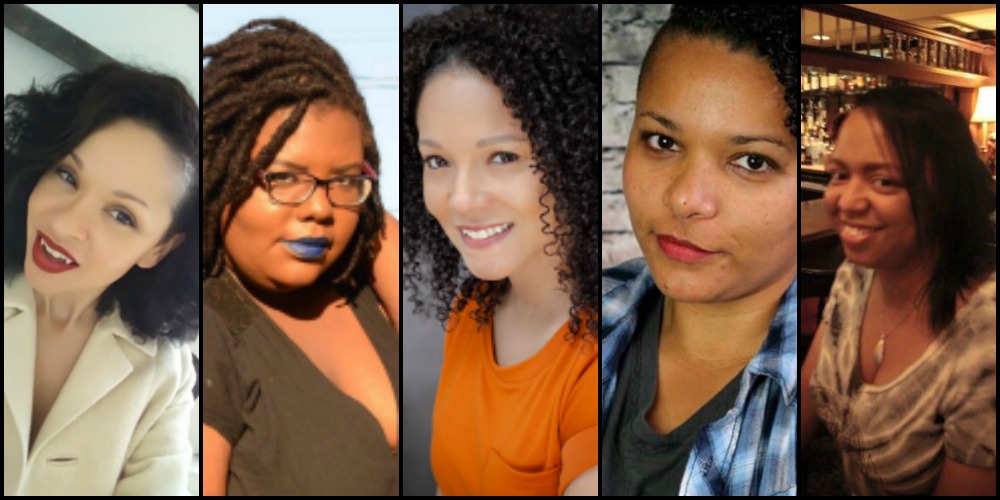
Some of you may have recently read about Rachel True and her blatant omission from convention reunions for The Craft. The singular black actress in the film has been excluded from events since the film’s release, including an MTV awards show in which her three white co-stars were asked to present an award while she sat, watching from the audience.
Public response was immediate and divided. While some lauded True for speaking up, others called her out implying that maybe she just didn’t have the drawing power the other three had for conventions and other appearances.
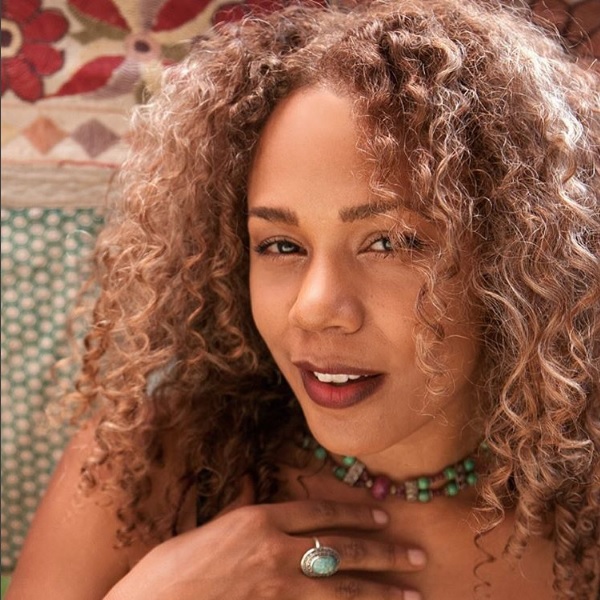
Anyone who knows my work will realize that this immediately sounded alarm bells in my head, and I wanted to write about the actress’s exclusion, and the presence of racism in the horror business both in front of and behind the camera.
There was only one problem, really. I’m a white guy, and while I am also gay and understand marginalization on that front, I’m also aware that the “white” part of my description comes with certain privileges that others do not share.
In order to write about the realities of racism and sexism in the film industry, I needed those who had experienced it for themselves first hand.
As it happens, February is both Black History Month in the States and Women in Horror Month, and I saw this as an opportunity to combine both of these celebrations to discuss this serious matter.
I sent messages to three indie filmmakers I knew in particular who quickly added two more names to the list and last Sunday, the five of them sat down with me via phone to discuss issues that, despite what some may tell you, have not improved nearly enough in the U.S. especially.
Over the following hour I sat in awe as these phenomenal women took me into their confidence and related stories to me and each other, comparing experiences within the business of horror film-making.
We began our discussion with Rachel True’s situation, and it quickly became clear not only what the actress meant to these women, but also how her treatment echoed their own experiences.
“What has been going on with Rachel has really resonated with me,” Dallas-based writer/director/actress Tiffany Warren began. “I’ve struggled so much with finding roles that I finally broke down and asked a casting director here in Texas why. Is it something I’ve done wrong? And I’ve actually gotten feedback that they just don’t know what to do with me because I either don’t look ‘black enough’ or I’m too ethnically ambiguous.”
Not black enough? What does that even mean? I immediately thought of the Ruby Rose/Batwoman situation where toxic fans implied she wasn’t lesbian enough to play the role, and made a mental note to return to the subject.
“I think what she [Rachel True] has experienced is valid, but I don’t know if it’s intentional racism,” Warren continued. “One of the things I have noticed is that when she talks about her story, people will say things like, ‘There’s just not a demand for black people in horror’ or ‘There’s just not a lot of fans who are black in horror.'”
“Okay, that’s a straight lie,” interjected award-winning screenwriter and director Lucy Cruell. “I’m going to say that right quick. That’s an absolute lie.”
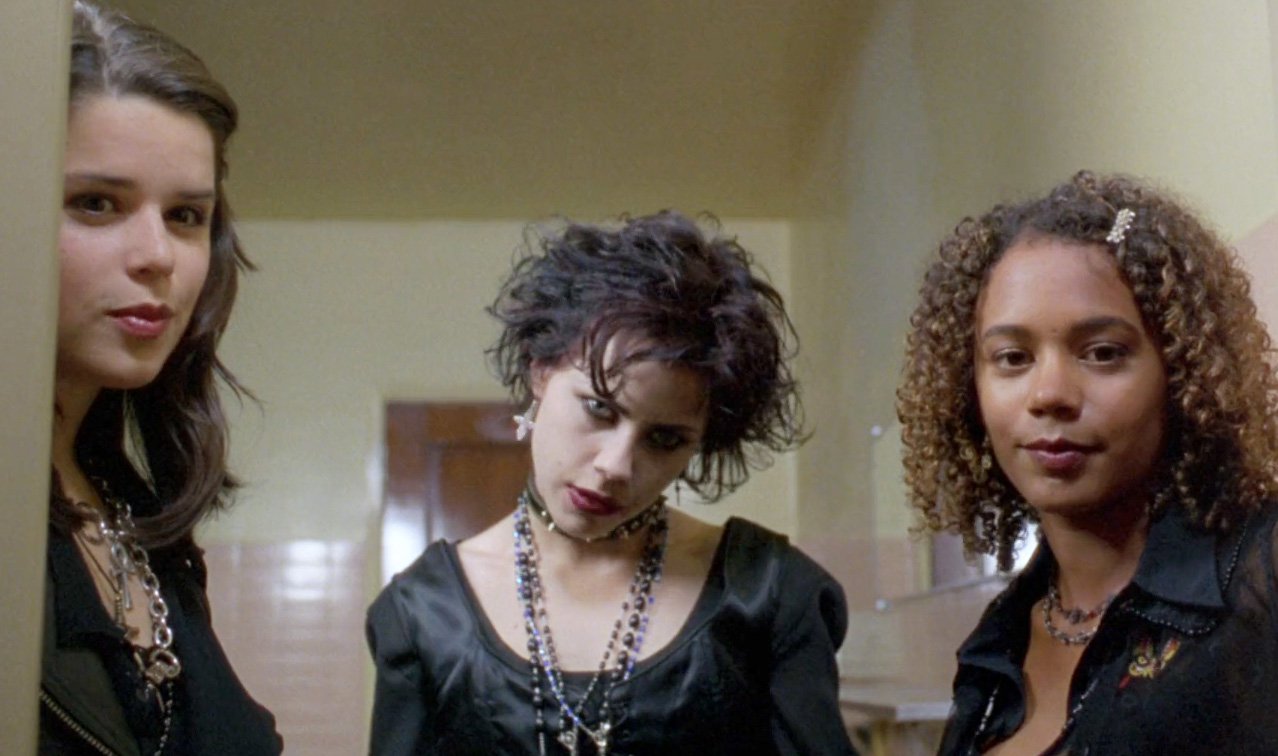
“It’s just racism,” San Francisco based writer and director Comika Hartford continued. “It’s more than just individual people making racist decisions. It’s because we live in a racist nation built on genocide, slavery, and murder. What I’ve found is that things are not getting better, and I’ve found that these people have set themselves up as the gatekeepers of ‘blackness.’ It’s about dividing who is ‘acceptable black’ from who is not.”
“We’ve seen the backlash she’s received from promoters and convention planners who want to spin her response,” added Drexel University alum and award-winning screenwriter Chris Courtney Martin. “They say, ‘Oh we were going to call you, but you just screwed up.'”
“That’s gaslighting because she called them out.” Hartford said.
Gaslighting refers to manipulation by sewing seeds of doubt in a person’s sanity or reliability. The terms comes from the 1944 George Cukor film, Gaslight, in which Charles Boyer attempt to drive Ingrid Berman insane.
“Her representation had already reached out and were told they weren’t interested,” Warren pointed out.
“So now, they sit and spin the ‘angry black woman’ narrative and make it seem like she was being aggressive and belligerent,” Martin continued, “and they don’t want to work with her when we already know it came down to racism.”
“If you make a peep, you get that angry black woman stereotype,” Cruell said. “If you complain or question even in the nicest possible terms, that stereotype pops up faster than you can get to the question mark.”
Cruell went on to relay her own experiences growing up in a small town where everyone knew everyone, and how it created a sort of “racial unawareness” of what was going on in the world around her.
When, after attending Harvard Law School, she decided to pursue screenwriting instead, the systemic racism and sexism she met was almost baffling, but that people like True speaking up offers validation to her own experiences.
“It took me a while to figure out when I was first starting out,” she explained. “I kept getting awards and winning fellowships and then I’d meet some guy who won third place in one contest and he already had an agent and a manager. It just kept happening and you get to the point where you’re just confused and you don’t know where to turn and you need to know if this is happening to other people.”
She went on to describe the situation as something akin to the old Twilight Zone episode “Five Characters in Search of an Exit” saying that they’re all looking for the door but only the [white] men in charge can present it, and it doesn’t appear that they’re ready.
For those who think these women might be exaggerating, I would point out to you that while the number of men of color directing big screen releases has increased over the last couple of years, the number for women of color is still abysmally low.
In fact, according to Variety, when reporting on the top 100 films for each of the last 12 years, they pointed out that out of 1200 titles, there were only five black women directors at the helm and only three Asian women and one Latina.
It’s downright maddening when one considers the perspectives we’re missing by not including these voices.
But let’s get back to that question of what it means to “not be black enough.”
“My question for that is always ‘What’s your interpretation of black?'” Georgia-based filmmaker and actress Melissa Kunnap said. “Their answer is usually something very stereotypical and I’m going to say, ‘So are you the benchmark for a white person?’ When they say that, no, white people come with all kinds of backgrounds and education levels I tell them so do we. Your idea of what a black person is, that’s just a stereotype and that is not who we are in the world.”
“White people think they are in charge of policing blackness,” Hartford added. “There’s also the issue of enforced colorism in the U.S. That’s a big part of the problem and its definitely a European disease that affects other cultures. When you’re dealing with colorism, you’re dealing with the after-effects of colonialism.”
For those unaware, “colorism” refers to a stratification based on skin-tone where certain qualities, characteristics, advantages, and disadvantages, are ascribed to the varying shades of lightness and darkness of a person’s skin color.
“I don’t think they realize how dehumanizing it is,” Cruell said. “It’s almost like they’re separating and deciding what it is to be human. They can be anything from a country and western singer to a headbanger, but you’re only allowed to be this one thing. We’re limited by the boundaries that one race has laid out for another. It’s annoying and limiting.”
“Every black person everywhere has to represent every black person everywhere,” Hartford added “but white people are ‘normal’ and get to be individuals.”
Continue to the next page for more!
'Civil War' Review: Is It Worth Watching?
Follow our new YouTube channel "Mysteries and Movies" here.
Movies
Trailer for ‘The Exorcism’ Has Russell Crowe Possessed
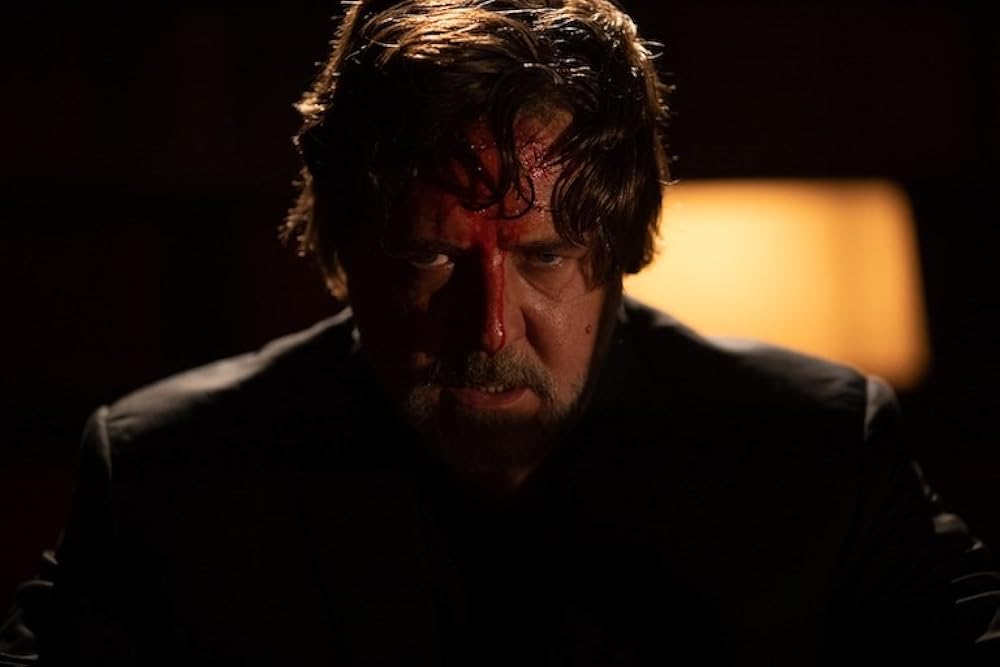
The latest exorcism movie is about to drop this summer. It’s aptly titled The Exorcism and it stars Academy Award winner turned B-movie savant Russell Crowe. The trailer dropped today and by the looks of it, we are getting a possession movie that takes place on a movie set.
Just like this year’s recent demon-in-media-space film Late Night With the Devil, The Exorcism happens during a production. Although the former takes place on a live network talk show, the latter is on an active sound stage. Hopefully, it won’t be entirely serious and we’ll get some meta chuckles out of it.
The film will open in theaters on June 7, but since Shudder also acquired it, it probably won’t be long after that until it finds a home on the streaming service.
Crowe plays, “Anthony Miller, a troubled actor who begins to unravel while shooting a supernatural horror film. His estranged daughter, Lee (Ryan Simpkins), wonders if he’s slipping back into his past addictions or if there’s something more sinister at play. The film also stars Sam Worthington, Chloe Bailey, Adam Goldberg and David Hyde Pierce.”
Crowe did see some success in last year’s The Pope’s Exorcist mostly because his character was so over-the-top and infused with such comical hubris it bordered on parody. We will see if that is the route actor-turned-director Joshua John Miller takes with The Exorcism.
'Civil War' Review: Is It Worth Watching?
Follow our new YouTube channel "Mysteries and Movies" here.
News
Win a Stay at The Lizzie Borden House From Spirit Halloween
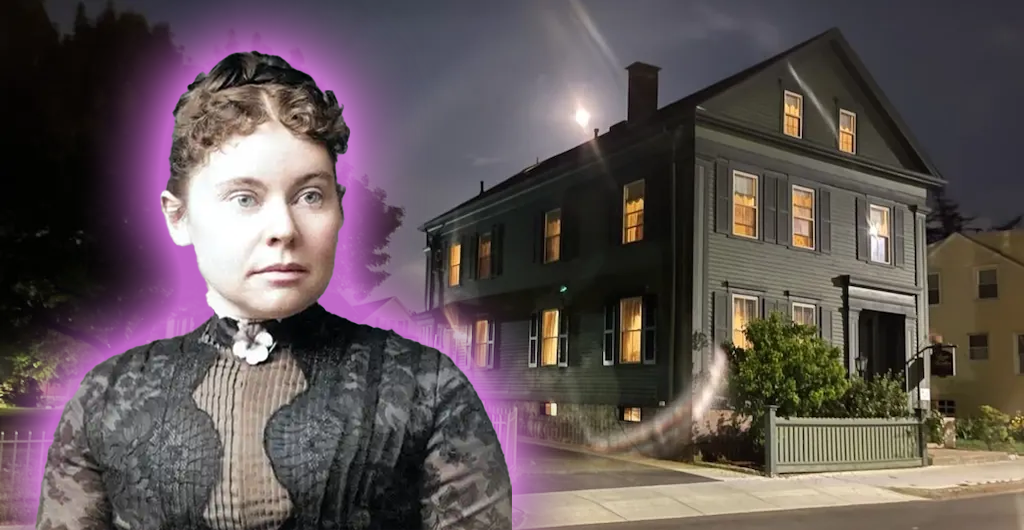
Spirit Halloween has declared that this week marks the start of spooky season and to celebrate they are offering fans a chance to stay at the Lizzie Borden House with so many perks Lizzie herself would approve.
The Lizzie Borden House in Fall River, MA is claimed to be one of the most haunted houses in America. Of course one lucky winner and up to 12 of their friends will find out if the rumors are true if they win the grand prize: A private stay in the notorious house.
“We are delighted to work with Spirit Halloween to roll out the red carpet and offer the public a chance to win a one-of-a-kind experience at the infamous Lizzie Borden House, which also includes additional haunted experiences and merchandise,” said Lance Zaal, President & Founder of US Ghost Adventures.
Fans can enter to win by following Spirit Halloween‘s Instagram and leaving a comment on the contest post from now through April 28.
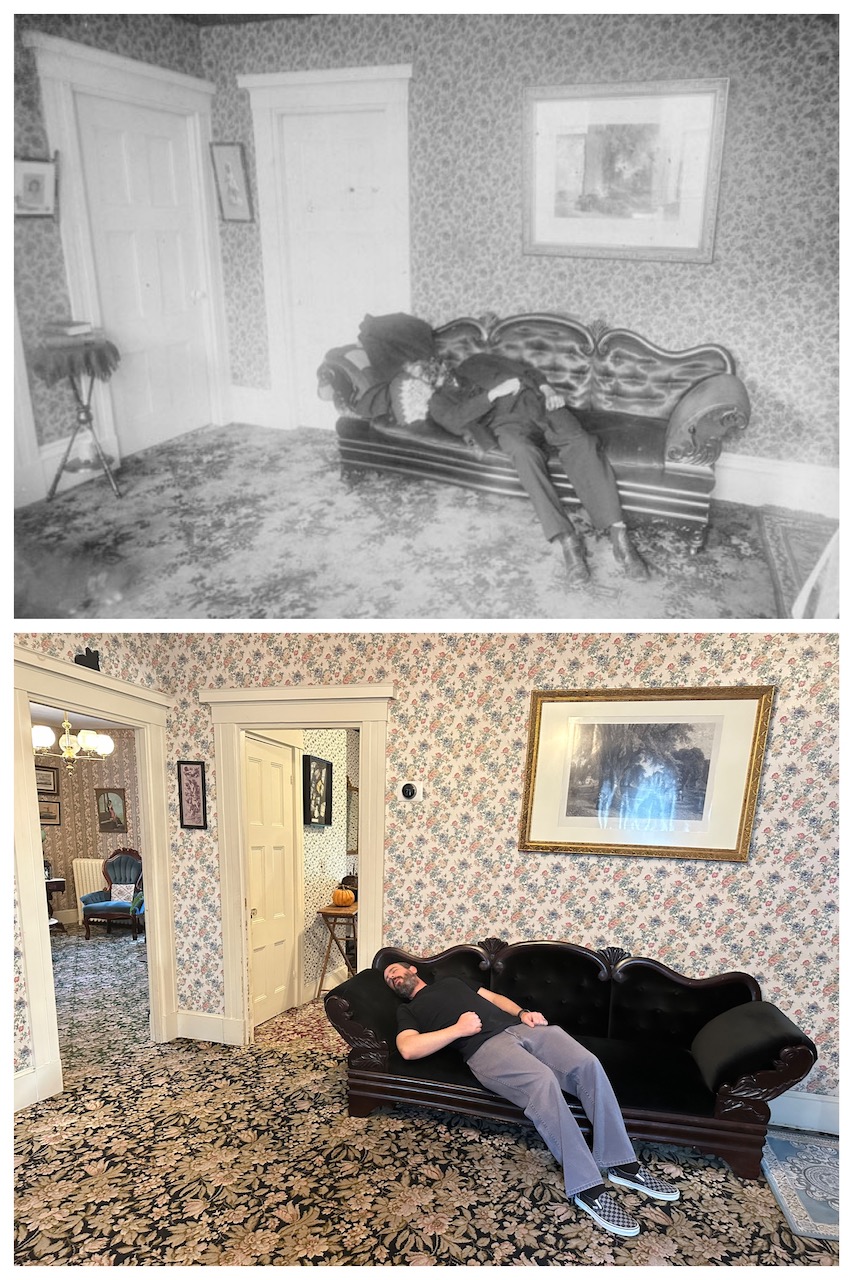
The prize also includes:
An exclusive guided house tour, including insider insight around the murder, the trial, and commonly reported hauntings
A late-night ghost tour, complete with professional ghost-hunting gear
A private breakfast in the Borden family dining room
A ghost hunting starter kit with two pieces of Ghost Daddy Ghost Hunting Gear and a lesson for two at US Ghost Adventures Ghost Hunting Course
The ultimate Lizzie Borden gift package, featuring an official hatchet, the Lizzie Borden board game, Lily the Haunted Doll, and America’s Most Haunted Volume II
Winner’s choice of a Ghost Tour experience in Salem or a True Crime experience in Boston for two
“Our Halfway to Halloween celebration provides fans an exhilarating taste of what’s to come this fall and empowers them to start planning for their favorite season as early as they please,” said Steven Silverstein, CEO of Spirit Halloween. “We have cultivated an incredible following of enthusiasts who embody the Halloween lifestyle, and we’re thrilled to bring the fun back to life.”
Spirit Halloween is also preparing for their retail haunted houses. On Thursday, August 1 their flagship store in Egg Harbor Township, NJ. will officially open to start off the season. That event usually draws in hordes of people eager to see what new merch, animatronics, and exclusive IP goods will be trending this year.
'Civil War' Review: Is It Worth Watching?
Follow our new YouTube channel "Mysteries and Movies" here.
Movies
’28 Years Later’ Trilogy Taking Shape With Serious Star Power
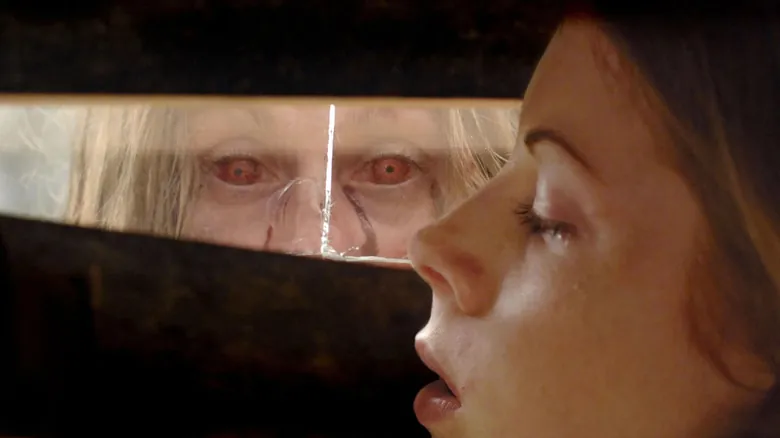
Danny Boyle is revisiting his 28 Days Later universe with three new films. He will direct the first, 28 Years Later, with two more to follow. Deadline is reporting that sources say Jodie Comer, Aaron Taylor-Johnson, and Ralph Fiennes have been cast for the first entry, a sequel to the original. Details are being kept under wraps so we don’t know how or if the first original sequel 28 Weeks Later fits into the project.
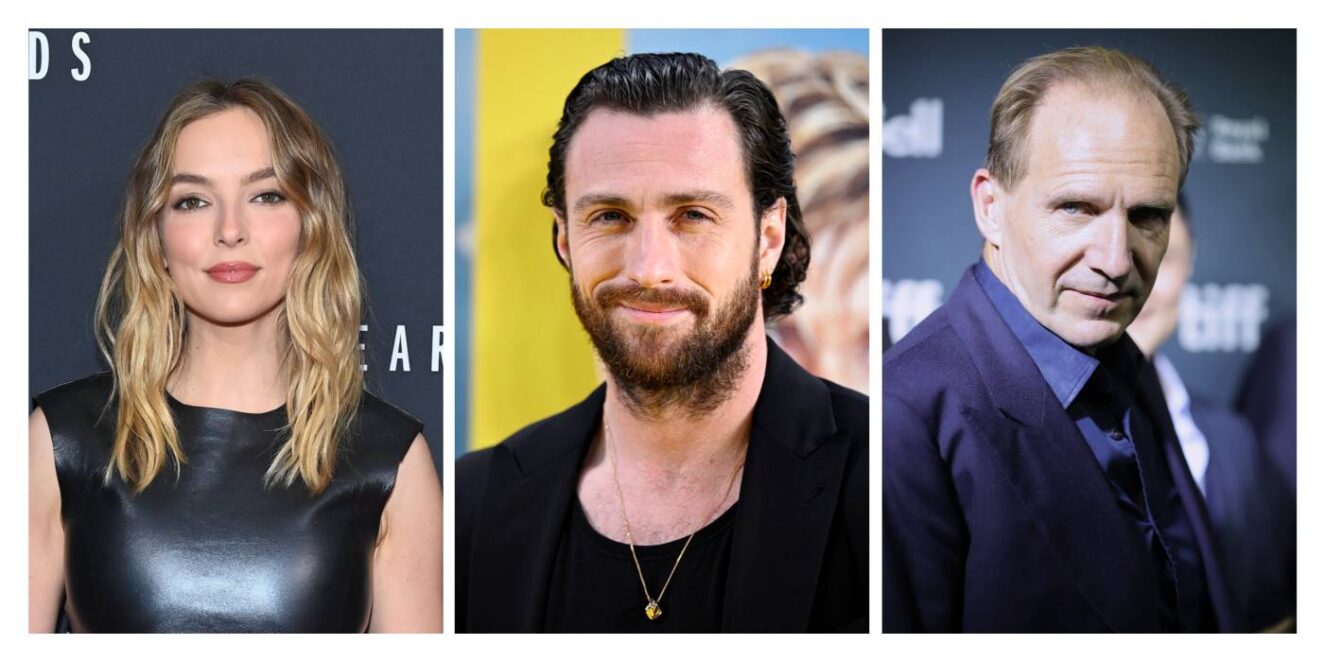
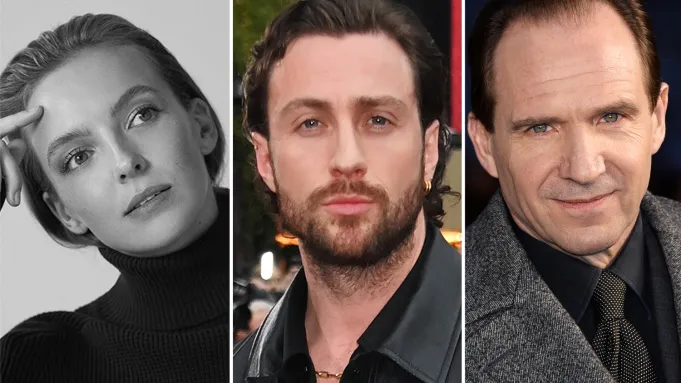
Boyle will direct the first movie but it’s unclear which role he will take on in the subsequent films. What is known is Candyman (2021) director Nia DaCosta is scheduled to direct the second film in this trilogy and that the third will be filmed immediately afterward. Whether DaCosta will direct both is still unclear.
Alex Garland is writing the scripts. Garland is having a successful time at the box office right now. He wrote and directed the current action/thriller Civil War which was just knocked out of the theatrical top spot by Radio Silence’s Abigail.
There is no word yet on when, or where, 28 Years Later will start production.
The original film followed Jim (Cillian Murphy) who wakes from a coma to find that London is currently dealing with a zombie outbreak.
'Civil War' Review: Is It Worth Watching?
Follow our new YouTube channel "Mysteries and Movies" here.
-
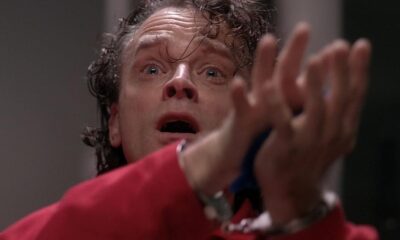
 News6 days ago
News6 days agoBrad Dourif Says He’s Retiring Except For One Important Role
-

 Strange and Unusual6 days ago
Strange and Unusual6 days agoMan Arrested for Allegedly Taking a Severed Leg From Crash Site And Eating It
-
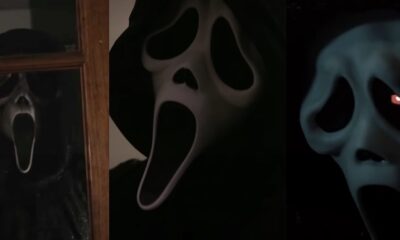
 Editorial6 days ago
Editorial6 days ago7 Great ‘Scream’ Fan Films & Shorts Worth a Watch
-
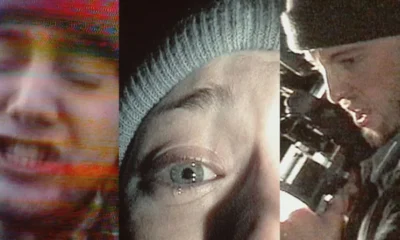
 News4 days ago
News4 days agoOriginal Blair Witch Cast Ask Lionsgate for Retroactive Residuals in Light of New Film
-
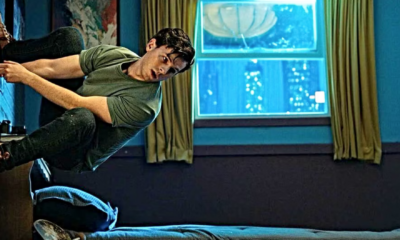
 Movies5 days ago
Movies5 days agoSpider-Man With a Cronenberg Twist in This Fan-Made Short
-
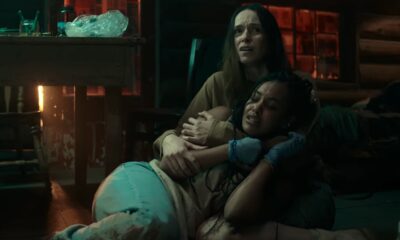
 Movies6 days ago
Movies6 days agoCannabis-Themed Horror Movie ‘Trim Season’ Official Trailer
-
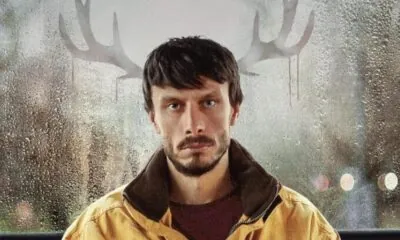
 News2 days ago
News2 days agoPerhaps the Scariest, Most Disturbing Series of The Year
-

 Movies3 days ago
Movies3 days agoNew F-Bomb Laden ‘Deadpool & Wolverine’ Trailer: Bloody Buddy Movie
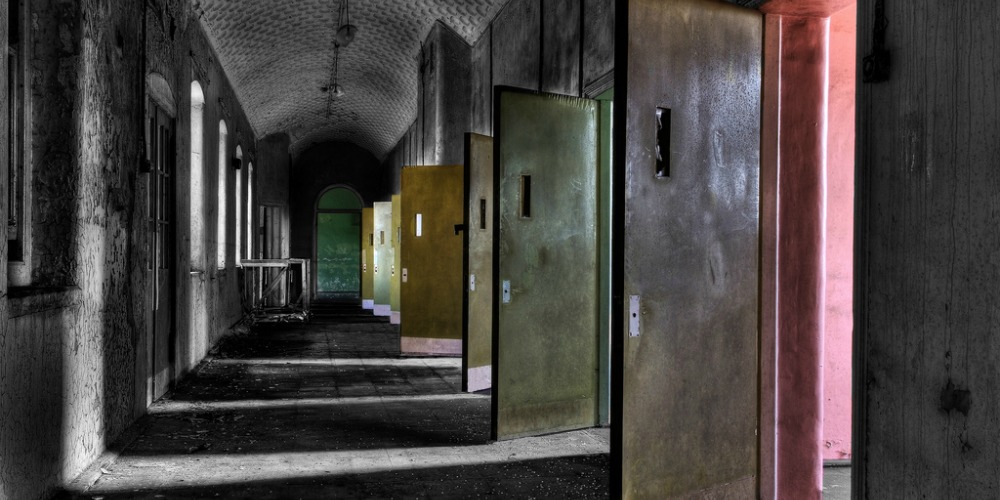
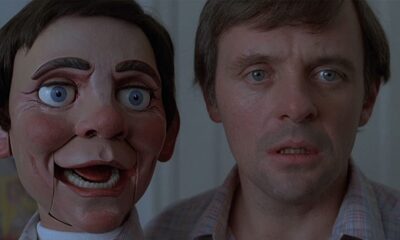

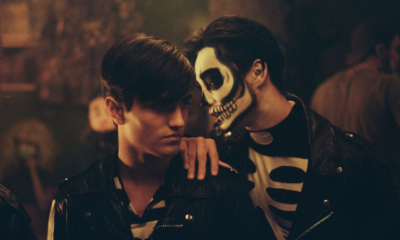


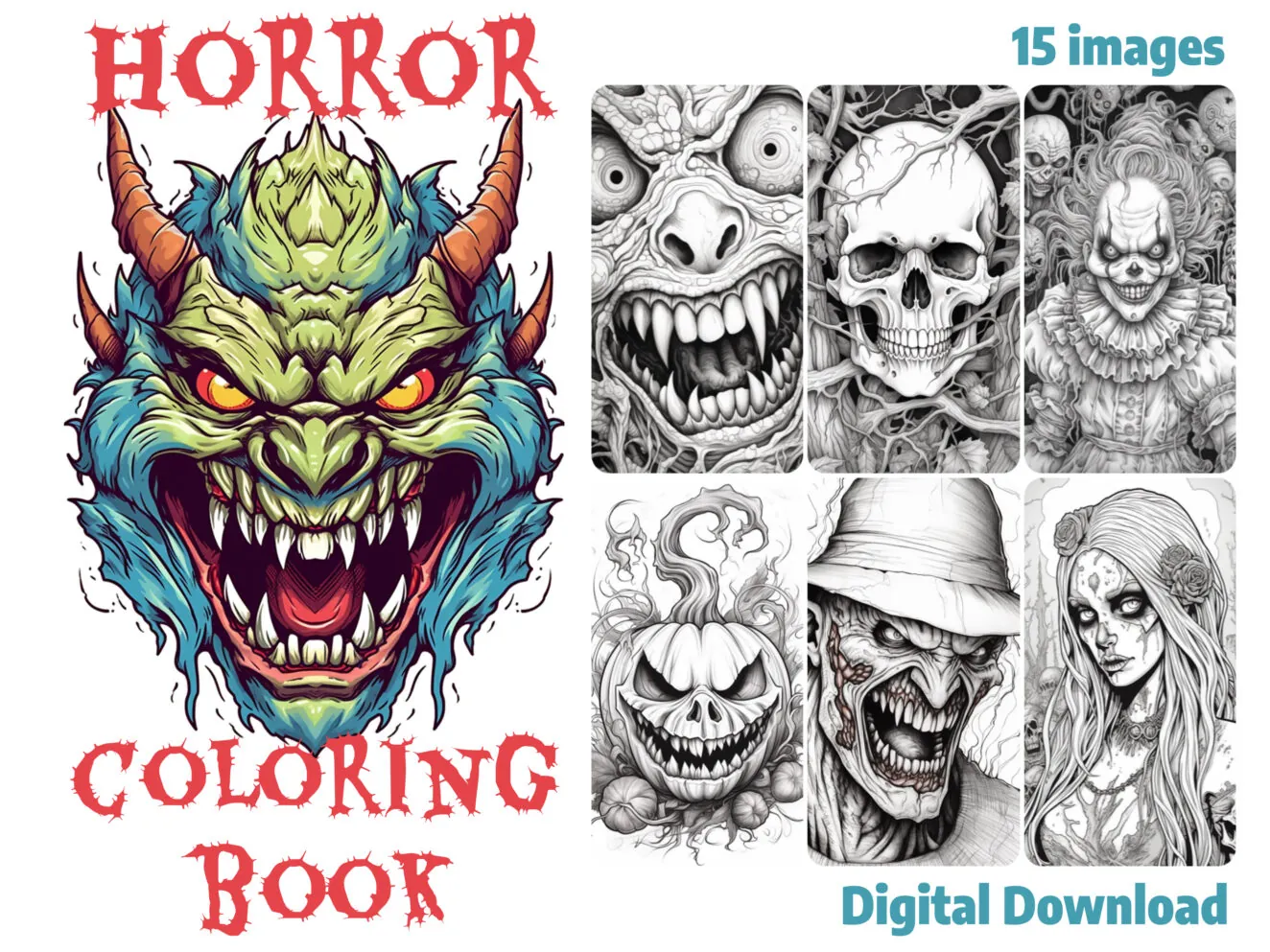
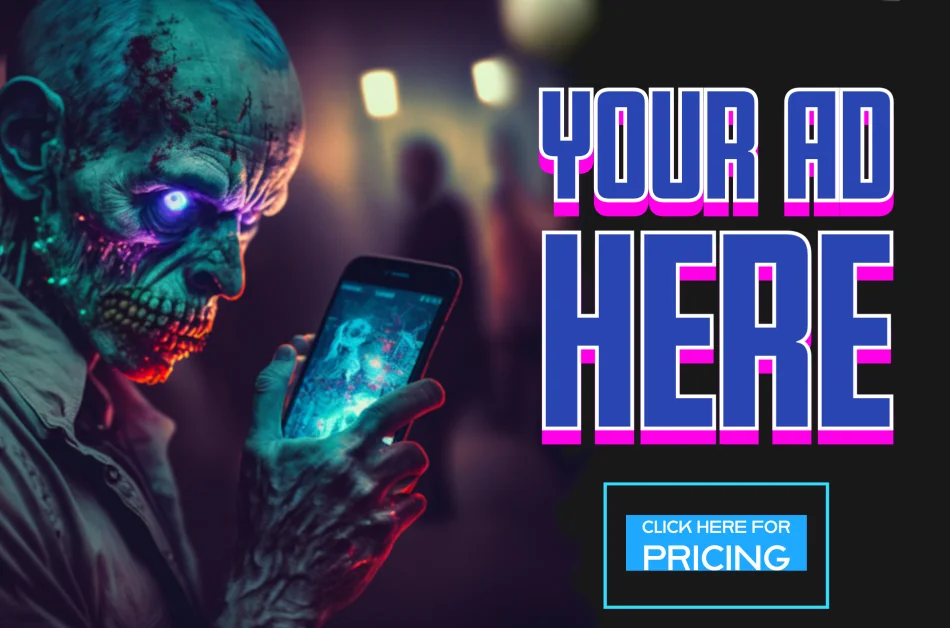



















You must be logged in to post a comment Login